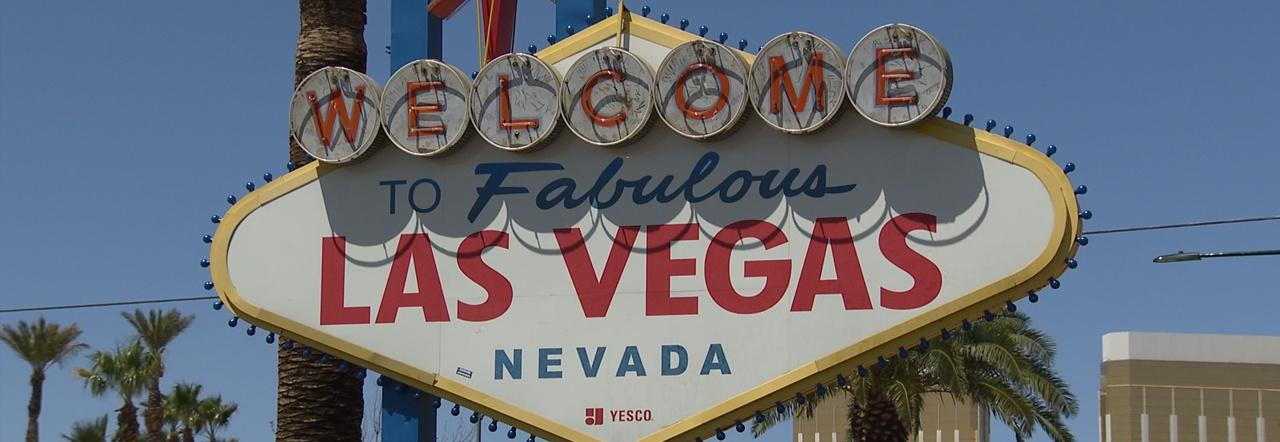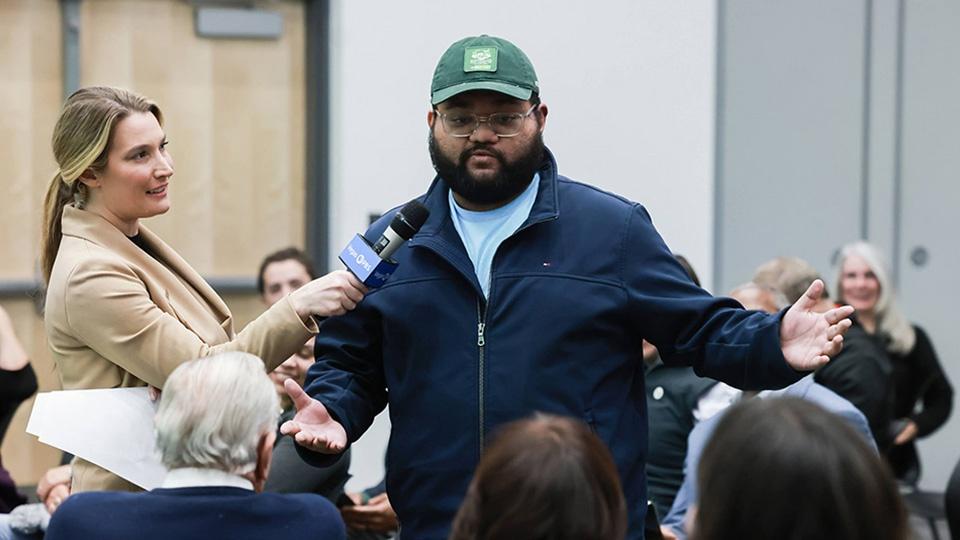Tourism and Spending Slump Hits Vegas


The “summer slump” is typical each year when it comes to visitation in Las Vegas. Between triple-digit heat and fewer conventions and sporting events, fewer people make the trip to Las Vegas during the summer. But this year, there are questions about how much of a role the economy, politics, and even civil rights factor into the slump.
According to the Las Vegas Convention and Visitors Authority, visitor volume in May decreased 6.5% compared to the year before. The Nevada Independent’s Gaming, Tourism, and Sports Business Reporter Howard Stutz says industry leaders are concerned about fewer people choosing to spend money in Las Vegas, which is why many of the major resorts are offering more incentives.
“You look around the Strip, every day there’s a hotel saying ‘no resort fees.’ Resorts World went free parking. They’re doing different things to try and get visitors here, to try and entice visitation,” Stutz told Nevada Week.
Stutz says industry leaders believe tourism and spending will pick up during the fall, as there will be more major conventions and sporting events happening in Las Vegas. However, things become more complex when addressing the reasons international visitation to Las Vegas is down.
“International travel, back after the pandemic, was the last piece of the puzzle that tourism leaders here wanted to get back,” Stutz said. “Right now, where we’re at with international travel is getting below where we were last year. And it’s falling, and it will continue to fall. So this is a huge piece of the puzzle in Vegas that we’re losing.”
Christopher Peterson is the legal director for the American Civil Liberties Union of Nevada. He described to Nevada Week how tougher immigration laws are impacting international visitors as well as people already living in the U.S.
“If we’re putting people in jail for minor violations of visa overstays, and that’s making the news, and it's scaring people away, people aren’t going to come here,” Peterson said.
Peterson shared an example of the cases he’s seeing.
“There’s been news recently of at least one traveler that came in from Germany to visit someone they knew living here in Las Vegas. They went briefly down to Mexico, and when they tried to cross the border, he was detained at the San Diego border and was held in custody for an extended period of time. When, typically in previous years, our government would have simply said ‘Look, you can’t come in, your visa doesn’t work right now,'” he said.
Peterson also spoke about other countries issuing travel advisories for people visiting the United States. There are concerns for LGBTQ+ travelers, particularly those who use “X” as a gender identifier on passports and other documents.
On President Donald Trump’s first day in office, he issued an executive order stating the federal government only recognizes two sexes: male and female. The State Department then eliminated “X” as a gender option, meaning U.S. citizens applying for or renewing a passport no longer have this option. This impacts transgender, nonbinary, and intersex travelers. Peterson says that by taking away this choice, citizens of other countries may not feel comfortable visiting the United States.
“I think the key thing about allowing people to choose, especially when it comes down to having a gender marker that conforms with how people view them, what is their appearance. It has a two-fold thing. One, it makes it easier to actually identify them if how they appear matches with the gender marker they’ve chosen,” Peterson said. “But it’s also a safety thing. I mean, if you’re traveling to a culture that’s hostile to people who don’t conform with their gender norms, if your gender marker does not line up with how they think you should look, you might be in danger. And now we’re signaling to other countries: We might be one of those cultures where if you come here, you might be in danger.”
Stutz pointed out how Las Vegas continues to market itself as an LGBTQ+ friendly community.
“Pride Month is June. [The LVCVA] put out this huge press release, five pages long, of all these events that happened during the month of June,” he said, “Now, we’ll see the June numbers in a week or so from the LVCVA. We’ll see if people came in for that month.”
Peterson noted that Las Vegas has always been a place for everyone to have a good time.
“I think as far as our city is concerned, if you walk down the streets, we’re a cross-section of this country and we reflect the diversity of this country,” said Peterson. “And people may have their opinions, but I think generally on the ground we have an attitude of ‘live and let live’ and let people have a good time.”
However, he said that if tourists start to perceive Las Vegas, and the United States in general, as not welcoming, it could hurt the city’s key industry.
“But again, if the overall view of our country is one of ‘We’re not going to let you live your life the way you want to, and we’re not even going to let our own citizens do that,’ how do we expect people to trust us when we say ‘come here and have a good time?'” Peterson noted.
A smart and state-focused public affairs program, Nevada Week provides insight into the most current and critical issues facing Nevada. This weekly half-hour show covers a wide range of important issues such as health care, politics, arts and culture, education, economic development, social services and more.
Contact Nevada Week: nevadaweek@vegaspbs.org

A new initiative focused on civic engagement and community conversations in partnership with The Nevada Independent.